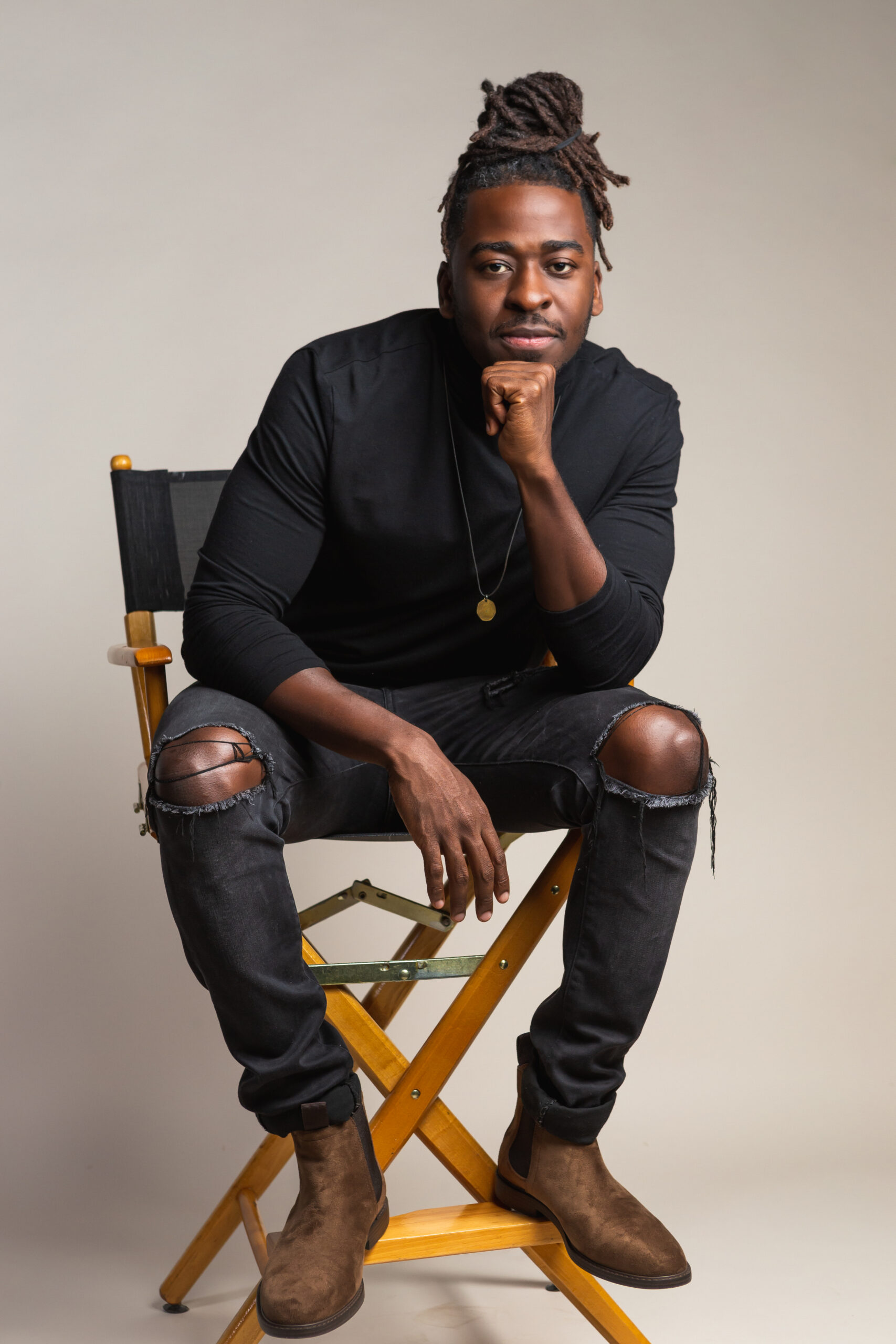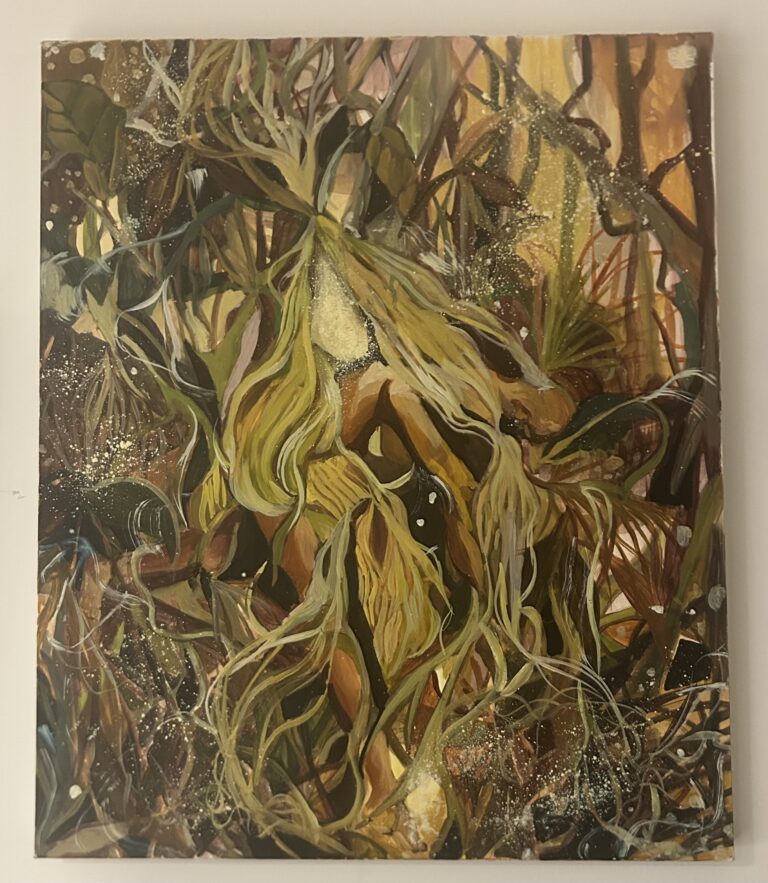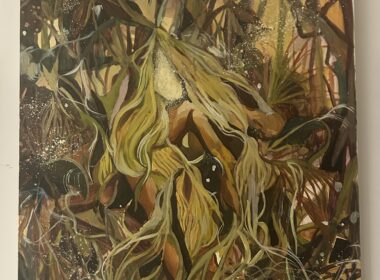Miami writer and director Edson Jean’s first feature film, Ludi follows a young Haitian American immigrant who seeks opportunity and prosperity in Miami’s private health sector. Ludi works overtime to send money to family in Haiti, but the pressures of caring for herself and her family threaten to push her to a breaking point. Jean co-wrote Ludi with his creative partner, Joshua Jean-Baptiste.
Through the Cinematic Arts Residency at Oolite Arts, which provides $50,000 to a Miami-based filmmaker to create a micro-budget feature film, Jean made the film a reality. Ludi is the first project to come out of the residency itself. The film opened the 2021 Miami Film Festival earlier this month and will screen virtually on Tuesday, March 16, as part of SXSW Online, a digital experience featuring conference keynotes and sessions, film screenings, music showcases, networking, exhibitions and more.
Still from Ludi starring Shein Mompremier. Photo Courtesy of Bantufy Films.
April Dobbins (AD): Tell me about your background and how you got started in film.
Edson Jean (EJ): I’m a product of conservatory training in theater and a student of the D.I.Y. mindset. I received my B.F.A. in theater (acting) from New World School of the Arts and soon after dived into the world of filmmaking. I was invigorated at the possibility and accessibility to tell my own stories through film. Essentially, after completing my thesis project at New World, I thought to myself—all these characters I played on stage are inspired by the friends and actors around me. So, I Googled “how to make a short film,” and turned my staged, one-person show into a short film titled, The Adventures of Edson Jean.
AD: What inspired Ludi?
EJ: So much inspired Ludi, but the core of that inspiration was from my mother’s earlier years as a recent immigrant and private caretaker making her way in Miami. As a child, I was aware of the push and pull between making a way in the land of opportunity and the self-imposed pressure to provide for family back home. I could write several novels containing the challenges my mother has been through, and what’s humbling to me is that she is not alone. So many immigrants have been through so much.
I was inspired to tell this story, because it is a slice of the multitude of experiences that I’m not seeing widely portrayed in Hollywood. I want this film to serve as a piece of representation. I want Haitian people and immigrants alike to say, “That’s me, I understand that, and it feels good to be seen.”

Edson Jean. Photo by Chris Diamond.
AD: How long did it take to complete the film, and where did you shoot?
EJ: Our crew was small and nimble! On an average day, we had about 12 people on set including cast. We shot in Little Haiti, North Miami and Hallandale Beach. We filmed for 14 days total including pick-up shoots. We could have finished in about five months’ time, but because of the pandemic shutdown, we relaxed and slowed down. We took our time to massage the project and were invited to participate in a few fellowships and labs while in post-production.
Our lead producer, Fabiola Rodriguez, was accepted into the New Orleans Film Society Southern Producers Lab with the project. We were then invited to the Independent Filmmaker Project Narrative Lab and U.S. in Progress in Wrocław. With all that, it took us one year and two months to see our final master of the film.
AD: What did you learn from making your first feature?
EJ: Don’t wait. Just jump in, and start mastering the craft. Many filmmakers get wrapped up in the perfectionist trap. I want to treat my films like paintings: put up the easel, paint the damn thing, and learn from your mistakes or from what worked—rinse, repeat.
AD: What are the most challenging things about being a filmmaker?
EJ: Generally, it costs so much money to make a film. That automatically creates barriers to so many already disenfranchised individuals. I want to change that. This film is also an exploration to shift the paradigm of how much money is needed to make a quality film of merit. I would also implore that filmmakers lean into the entrepreneurial mindset and stop waiting in line to be chosen by the gatekeepers. Technology has offered us filmmakers so many opportunities to establish autonomy. We simply have to think differently—sometimes that can be a hard thing to do.
AD: Do you have a day job?
EJ: I haven’t had a day job since undergrad. I told myself I need to live in a way that I’m not a slave to my bills, so I can have all the time to create. I’ve made concessions: I don’t have a car, and I room with my cousin and my best friend. Life is good when you do what you love.
AD: What’s next for you?
EJ: We make plans and God laughs. My intention is to film my second feature later this year. We will also be touring with Ludi up the coast of Florida, specifically in the communities that the film represents. It will be an event-based tour with Q&As and live musical performances, all centered around the themes of the film. Connect with us through @LudiFilm and @Bantufy on Instagram and Facebook or @BantufyFilms on Twitter to stay in the loop.
April Dobbins is a writer and filmmaker based in Miami. Her work has appeared in a number of publications, including the Miami New Times, Philadelphia City Paper, and Harvard University’s Transition magazine. Her films have been supported by the Sundance Institute, International Documentary Association, Firelight Media, ITVS, Fork Films, Oolite Arts, and the Southern Documentary Fund. She is a graduate student at Harvard University.







